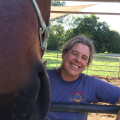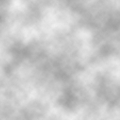Researchers

Pradeep Joshi
My research investigates the apoptotic and non-apoptotic roles of programmed cell death (PCD) regulators during cellular growth, proliferation, reprogramming and mitochondrial purifying selection in the C. elegans germline. I am also investigating the role of mitochondria and hormesis in aging and longevity as well as the regulation of adult germline stem cell (GSC) homeostasis by microRNAs.

Cricket Wood
I participate in and support several different research projects within the lab while managing the day to day running of the lab.

Juwel Chandra Baray
My research is centered on understanding transdifferentiation, transorganogenesis, and the intriguing fields of aging and longevity in the nematode C. elegans. Furthermore, my objective is to bridge the gap between human biology and model organisms by applying these insights to the context of human cells.

Anna Jellema-Butler
I am interested in understanding the mechanisms controlling healthspan and lifespan, including the role of genetic and epigenetic factors, natural and artificial rejuvenation events, and dietary and behavioral interventions. I work with the premier aging model of C. elegans and focus on leveraging large-scale biological data through the use of statistics and bioinformatics.

Perrine Changkuon
I work with Juwel on projects relating to aging and longevity in C. elegans and understanding the mechanisms that increase their lifespan.

Noah Linder
I am working with Juwel Chandra Baray on aging and longevity using C. elegans. We are interested in using this robust model to understand underlying lifespan extension pathways.

Sierra Wilson
I am working with Juwel to further understand and optimize mechanisms of extending lifespan & healthspan in C. elegans.



